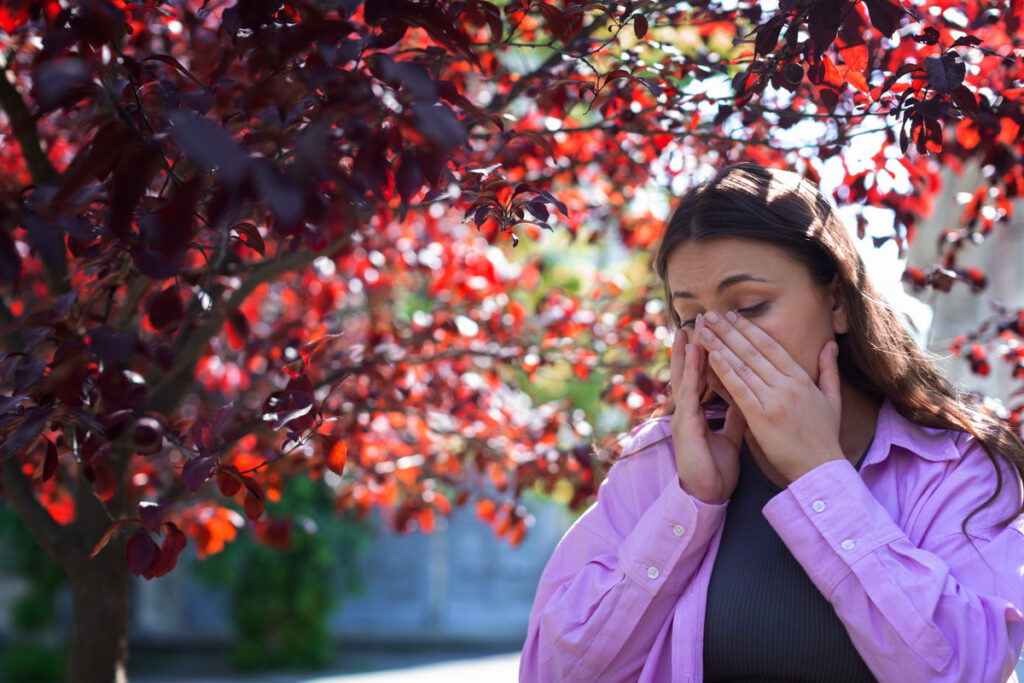Can allergies cause tinnitus? For many people, the answer might be surprising.
Tinnitus, the perception of ringing or buzzing in the ears without an external sound source, is often linked to hearing loss or noise exposure.
However, increasing evidence and patient experiences suggest that allergies can also play a role in triggering or worsening tinnitus symptoms.
Understanding the connection between your immune system and auditory function may help you take better control of both.
What Is Tinnitus and What Causes It?
Tinnitus is a symptom rather than a disease, and it affects millions of people worldwide.
It can manifest as ringing, buzzing, hissing, or clicking sounds, which may be constant or intermittent.
Common causes include prolonged exposure to loud noises, age-related hearing loss, ear infections, and certain medications.
Tinnitus can also arise from circulatory issues, jaw misalignment, or neurological disorders.
For some individuals, symptoms worsen in quiet environments or during periods of stress and fatigue.
How Allergies Affect the Ears
Allergic reactions, particularly seasonal allergies, can have a direct impact on ear health.
When you are exposed to allergens like pollen, pet dander, or dust mites, your immune system releases histamines.
This immune response leads to inflammation and congestion in your nasal passages and sinuses.
The swelling can affect the eustachian tubes, which are responsible for regulating pressure and fluid in the middle ear.
When these tubes become blocked or inflamed, pressure builds up, leading to discomfort, muffled hearing, and in some cases, tinnitus.
Histamine Response and Tinnitus
Histamines play a key role in allergic reactions and may indirectly contribute to tinnitus.
These chemical compounds cause blood vessels to swell and tissues to become inflamed.
In the ear, this can mean restricted movement of auditory structures and changes in inner ear pressure.
Such conditions can stimulate the auditory nerves in abnormal ways, resulting in phantom sounds.
In individuals with pre-existing tinnitus, allergies may not cause the condition but can significantly aggravate it.
When Allergy-Related Tinnitus Is More Likely
Certain times of the year or environmental settings can make tinnitus more noticeable for allergy sufferers.
Spring and fall, when pollen levels are high, are common triggers.
Indoor allergens like mold, pet dander, and dust mites can also lead to year-round symptoms.
People with allergic rhinitis or sinusitis often report increased ear congestion and ringing during flare-ups.
If your tinnitus seems to follow the same pattern as your allergy symptoms, it may not be a coincidence.
Treatments for Allergy-Induced Tinnitus
Managing the underlying allergies is the first step in reducing tinnitus symptoms.
Over-the-counter antihistamines can relieve nasal and sinus congestion, easing pressure on the ears.
Decongestants and nasal corticosteroid sprays can also reduce inflammation and improve eustachian tube function.
Saline nasal rinses help flush out allergens and mucus, supporting clearer airflow and pressure regulation.
In cases of persistent or severe symptoms, an allergist may recommend immunotherapy or prescription medications.
The Role of Stress and Sleep in Worsening Symptoms
Tinnitus is known to be exacerbated by stress, anxiety, and lack of sleep.
Allergies can negatively affect sleep quality and increase fatigue, both of which may heighten your awareness of ear ringing.
Chronic nasal obstruction can lead to mouth breathing and poor oxygen exchange during sleep, further reducing rest quality.
Stress related to persistent allergy symptoms can also create a cycle that makes tinnitus more bothersome.
Addressing both your allergic reactions and overall wellness can help break this loop.
Long-Term Strategies to Reduce Tinnitus Symptoms
For those dealing with allergy-related tinnitus, lifestyle changes can make a meaningful difference.
Limiting exposure to known allergens is key.
Use HEPA filters in your home, especially in bedrooms, and keep windows closed during high pollen seasons.
Wash bedding regularly in hot water and vacuum with allergen-reducing filters.
Maintain sinus health through hydration, humidifiers, and gentle nasal care.
Some individuals benefit from dietary changes, such as reducing caffeine and processed foods, which can also impact tinnitus severity.
Natural Support for Tinnitus Relief
Beyond traditional allergy management, natural supplements may help reduce tinnitus symptoms.
Sonus Complete is a 100% natural formula developed to support auditory and neurological health.
Its ingredients include vitamin C, B6, B12, niacin, folic acid, garlic, hibiscus, and green tea, among others.
These components offer antioxidant protection, reduce inflammation, and support blood flow to the auditory system.
By promoting relaxation and mental clarity, Sonus Complete may also mitigate stress-related tinnitus triggers.
Its dual action on hearing health and neurological balance makes it especially useful for people whose tinnitus flares up with allergies.
Finding Relief Through Holistic Care
If your tinnitus intensifies during allergy season, there may be a clear link between your immune response and auditory symptoms.
Managing allergens through medication, environmental control, and holistic approaches can reduce ear pressure and inflammation.
Combining this with a natural supplement like Sonus Complete offers a well-rounded strategy for calming the ringing in your ears.
To learn more about Sonus Complete and how it can support your hearing wellness, visit the official website today.









